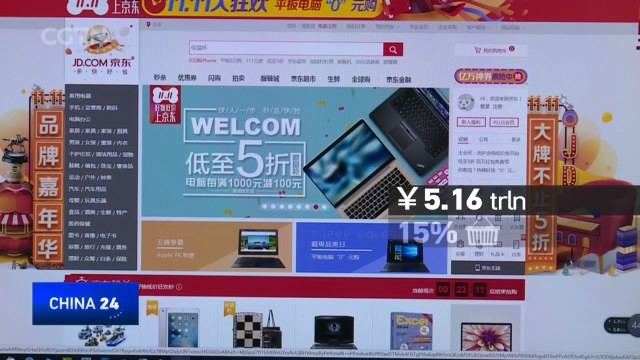
20:57, 05-Nov-2017
China E-Commerce: Top lawmakers take steps to regulate e-commerce sector

China continues to take steps to regulate its booming e-commerce sector. And this time, a new law will soon require vendors to get approval before selling on online shopping platforms. Christy Scull has more.
Making a quick buck or two online could become a thing of the past for China's online sellers. They may have to register with authorities and pay tax if a draft law considered by lawmakers is passed. It is also suggested that e-commerce platform operators should not escape their responsibilities.
HOU YIBIN MEMBER OF NPC STANDING COMMITTEE "Platform operators should also be responsible for the quality of goods sold on their platforms. Sellers are not the only group to blame."
E-commerce is big business in China. According to the National Bureau of Statistics, e-commerce sales reached over 5 trillion yuan last year, making up about 15 percent of all retail sales. Apart from the usual e-commerce platforms, merchants have also been seeking out other areas online to make money.
Recently, tech giant Tencent has began a serious push for developers to build e-commerce stores and a wide range of online services on WeChat, their social media and instant messaging app.
WeChat's wallet allows users to seamlessly make in-app purchases. And its social networking feature allows users to influence each other's purchasing decisions, and companies can see precisely how many people are talking about their products.
But experts say the convenience of WeChat shopping comes at a cost.
PROFESSOR GUO TIANYONG CENTRAL UNIVERSITY OF FINANCE AND ECONOMICS "Due to the lack of regulations and a credit system, there would be problems that lead to disputes between sellers and buyers."
In 2016, more than 30 million people sold products on WeChat, with sales reaching over 500 billion yuan. China's e-commerce market is transforming rapidly, and lawmakers continue to find ways to regulate the industry.
ZHOU TIANHONG MEMBER OF NPC STANDING COMMITTEE "We should also take WeChat shopping into the account of the e-commerce law."
China is definitely getting serious about its booming e-commerce sector. But as to when the draft law can come into effect, it remains to be seen.

SITEMAP
Copyright © 2018 CGTN. Beijing ICP prepared NO.16065310-3
Copyright © 2018 CGTN. Beijing ICP prepared NO.16065310-3